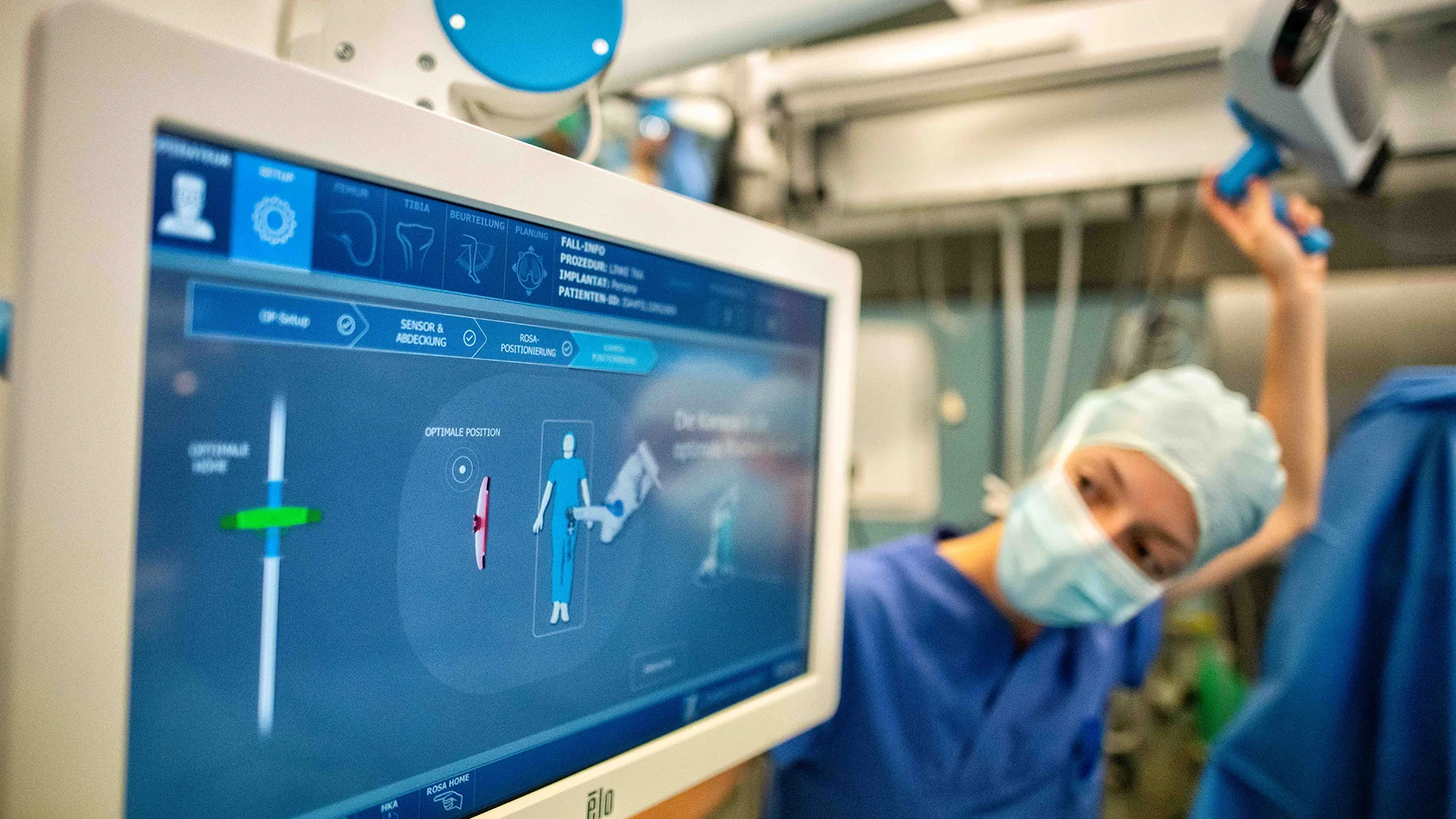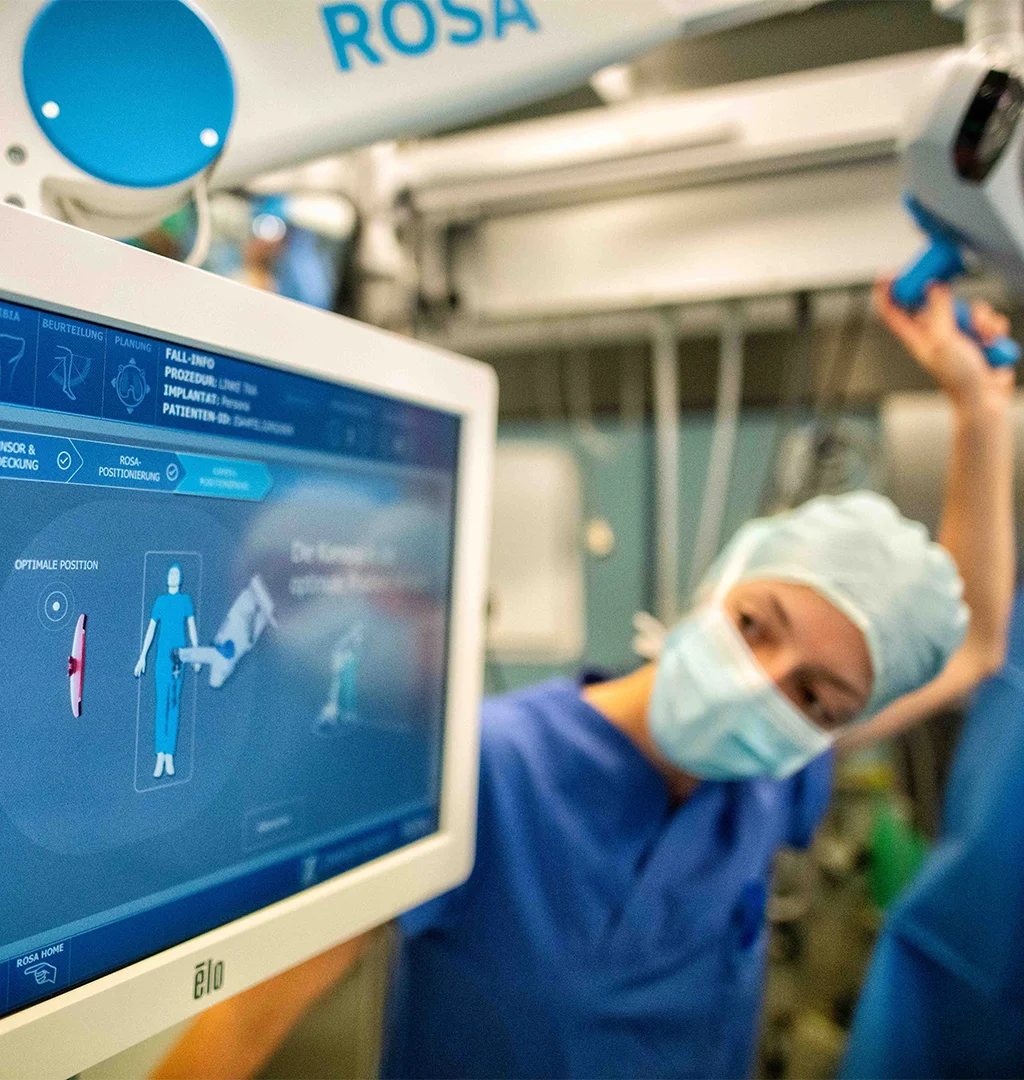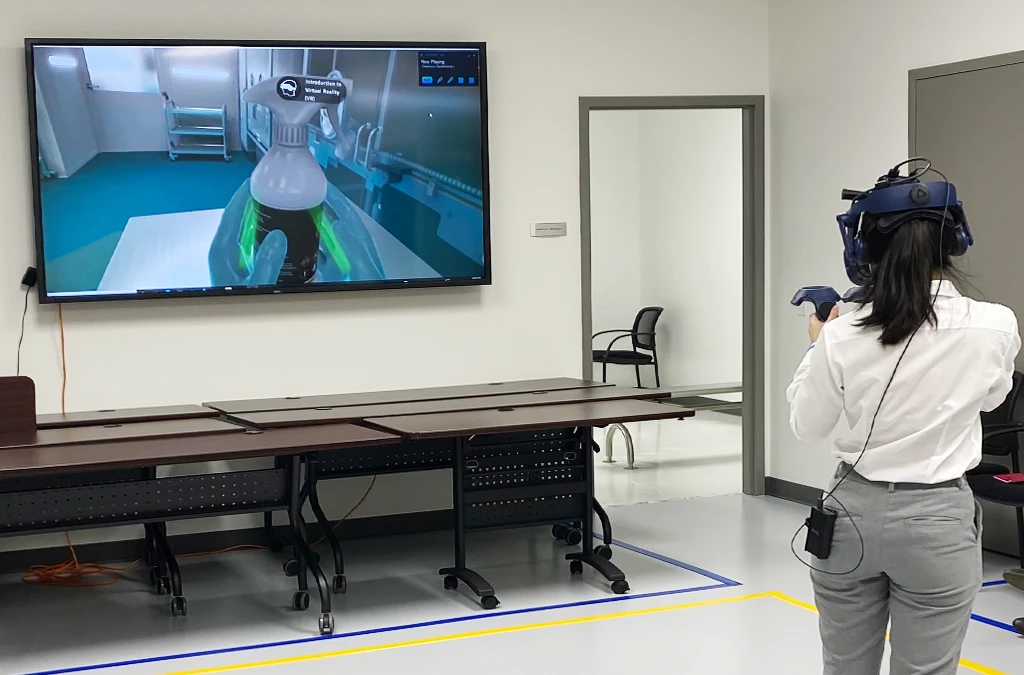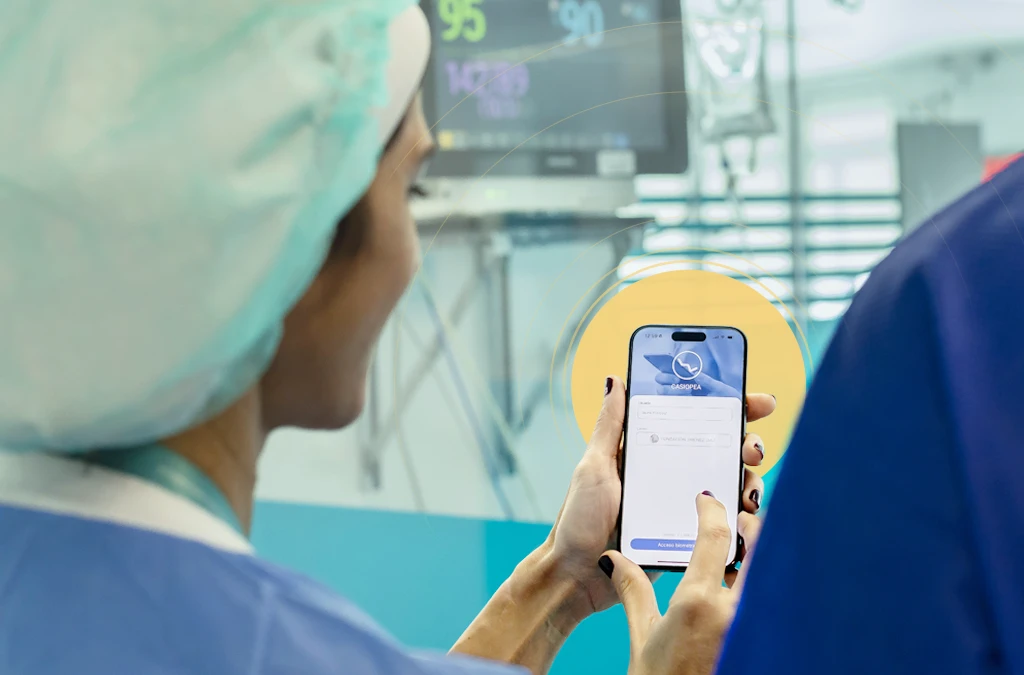New technologies and digital treatment methods are advancing day-to-day work in the healthcare sector. Services such as telemedicine are becoming more widespread. AI-supported analysis tools can also bring significant benefits. For example, by identifying diseases more quickly, we can improve our treatment options and contribute to the success of a therapy.
Our aim is to optimize processes both internally and throughout our value chain. Where possible, we digitize existing processes and introduce new digital workflows. We always keep an eye on the risks associated with digitalization, such as cyberattacks, and take necessary measures to protect our processes and data.
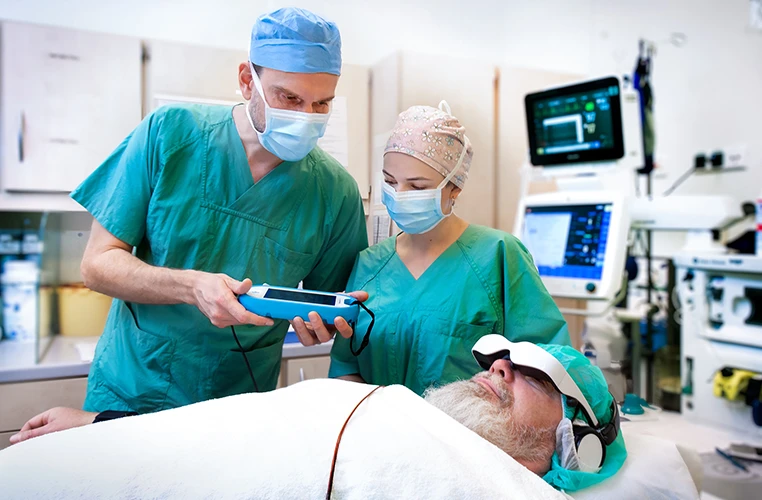
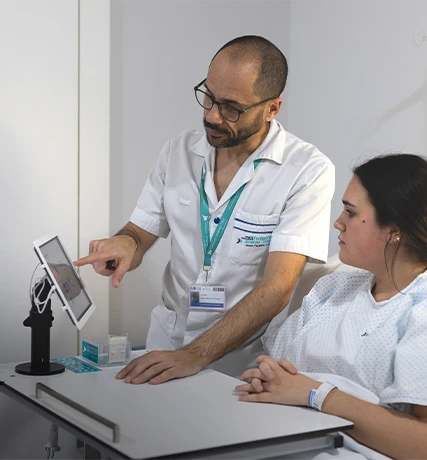
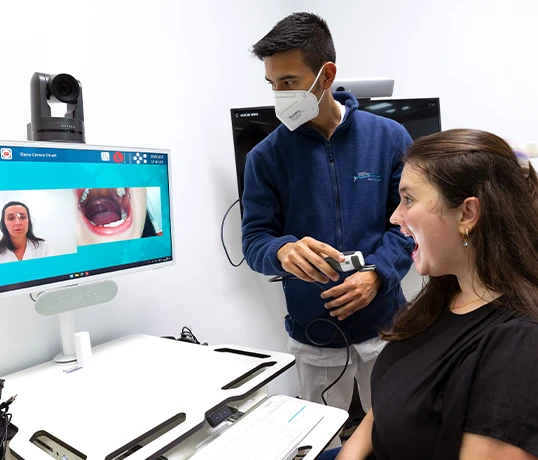
By using digital solutions, we can improve diagnostics, offer new treatment options, and enhance interaction with our patients.
Smart patient care: Self-determined and informed
Our patient care includes various digitalized processes, from preparing patients for admission – for example via video conferencing or chats with patients – to app-based post-treatment check-ups at home. Both Helios and Quirónsalud have virtual portals for patients. There they can find treatment documentation and recommendations, book appointments and participate in video consultations.
It is important to us to support and educate people in the use of our products. To this end, Fresenius Kabi offers information and support programs, such as the KetoApp, which helps people with chronic kidney disease to plan an appropriate and varied diet in line with their illness.
Using digital solutions to prevent human error
Digital applications help us to provide better patient care. Integrated software solutions in our clinics in Germany alert our employees of possible interactions between medications, thereby increasing patient safety. Digital products also support us with complex treatments: Digitally controlled infusion systems, in conjunction with information programs and analyses, help our nursing staff avoid infusion-related errors.
Digitalization also plays an important role in training context. Find out more about it in our Highlight story: Virtual reality training at Fresenius Kabi.
More efficient planning with digitalized logistics and real-time data
The digitalization of logistics processes offers a number of advantages for our production facilities: Fresenius Kabi uses track-and-trace systems for its products, for example. This enables the business segment to track medicines, syringes, and parenteral infusion solutions throughout the delivery process, and makes it possible to see where they are currently located, when they will arrive, and approximately when they will be used up. We are also integrating digital solutions into our manufacturing processes in order to reduce the consumption of materials and energy, while improving production quality. One important initiative is a data platform that collects production- and quality-specific data worldwide. Going forward, this platform will enable real-time analysis to identify production issues at an earlier stage and reduce reject rates.
Using medicines safely and efficiently with smart labels
Medical professionals in hospitals often need to be able to administer the right medication quickly. The accuracy of medication can make the difference between life and death. With scannable data matrix barcodes on the packaging of Fresenius Kabi products, hospital staff can quickly and reliably identify medications and integrate them into management systems. This gives them more time for their patients – even in emergency situations. Automatic identification minimizes the risk of human error: it eliminates the possibility of employees making mistakes through manual data entry, medication mix-ups, or the use of expired pharmaceuticals.

Technology provides support, but people decide: Artificial intelligence at Fresenius
We can make healthcare and production more efficient by using analysis methods and processes supported by data and AI. In everyday clinical practice, real-time data can help us to make prognoses, develop personalized treatment approaches, and take preventive measures.
At Fresenius, we are closely examining how we can and want to use AI. Our aim is to define uniform rules across the Group for the development and use of AI applications. The AI programs we use must always be compatible with Fresenius’ ethical standards and values. An internal guideline helps our employees recognize potential risks.
We use AI in various ways. You can find three examples from our day-to-day work in our Highlight story: The smart future of healthcare.
Cybersecurity: Strengthening resilience to cyberthreats
While digitalization brings many benefits, it also carries risks. Cyberattacks can have consequences, e.g., when sensitive data is exposed, or can cause delays in treatment or production in the event of system failure.
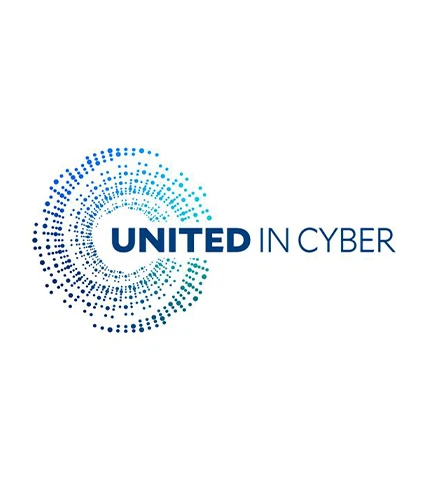
Effective protection against cyberattacks requires the commitment of all employees. Our Cybersecurity Training & Awareness Program (CTAP) helps to raise awareness of threats and to enable a rapid response. Through interactive learning content, regular phishing simulations, and the Phishing Alert Button, we sensitize employees and train them in dealing with potential threats. We also foster a sustainable security culture with targeted training campaigns, continuous awareness initiatives, and interactive on-site sessions.
Our Group-wide cybersecurity strategy includes various measures for strengthening our resilience to cyberattacks, reducing cyber risks, and preventing damage.


